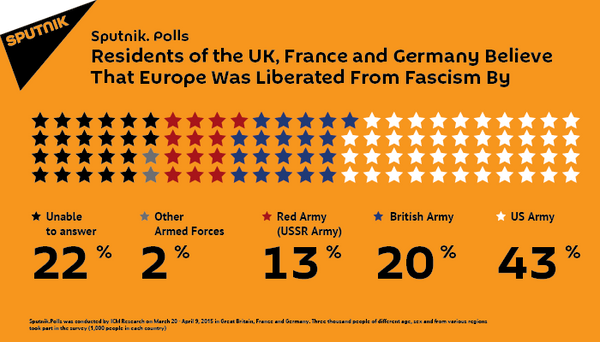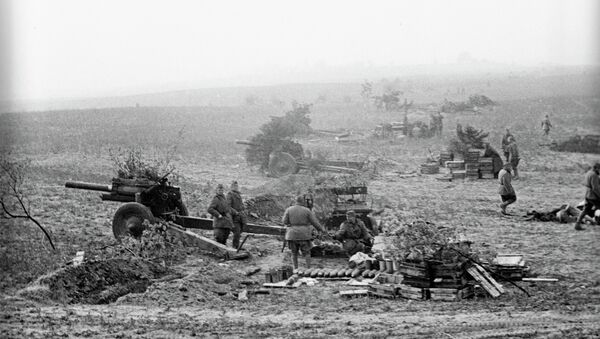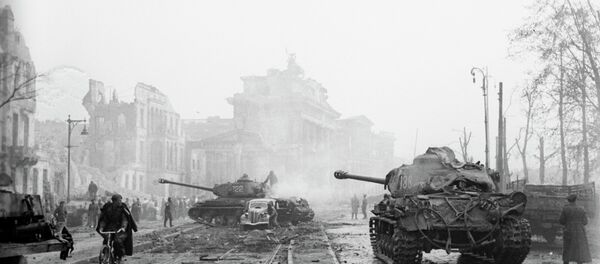"In Western Europe during the cold war the story was not of Soviet liberation, but of western liberation. The emphasis was always on western allies and the Americans especially. During the Cold War that was normal," Felix Berenskoetter, associate professor at the University of London's Department of Politics and International Studies, said.
Despite the fact that casualty figures are widely available, the story of who ended the war and who suffered the most varies across the continent, the expert told Sputnik.
"Western Europe was mostly liberated by Americans, so it relativizes the role of the Soviet Union in WWII. I imagine that in Eastern Europe, which was liberated by the Red Army, the view on this the Soviet Union's role is absolutely different," he said.
For France, the landings of US, UK, Canadian and Australian troops in Normandy were among the strongest images of the war, according to Fougier.
"This is what we call the liberation of France. It is true that for French people, the Soviet Union was far away. This fact, together with general culture, influences the perception of the role of the Soviet Union in WWII," he said.
Polls conducted exclusively for Sputnik by ICM Research and published earlier on Tuesday revealed that only 13 percent of German, British and French respondents believe that the Soviet Army played a key role in liberating Europe from Nazism.
Meanwhile, over 40 percent of respondents believe that the US Army played the most crucial role in determining the outcome of the war.






